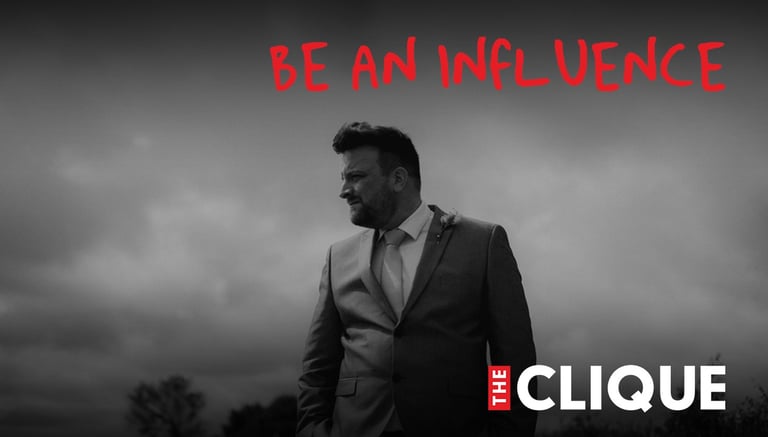Be an influence


// Changing Jobs
In March, I changed jobs.
It sounds so simple but for the last five years, my sole focus has been focused around building an influence in a product based business. Selling in a world focused around products means that there is an element of competition which is easily compared.
The whole market focuses on things like extra functionality, features and benefits. You could try to create demand through material shortages, stock levels or specific brand values but ultimately, when you’re working in a market solely focused on the features of a product, you have to work out a way to differentiate.
My way to differentiate - even in previous roles focused on a service - has been to align with the brand and then focus on the ways to build a presence, become ‘known’ and have an influence on the market.
Better known will ALWAYS beat best - especially in a sales conversation. If I was in a conversation with a client and they have an existing relationship with a brand, I would have always taken the time to get to know them more, take them to lunch and then spend time on the relationship.
The problem (not that big a problem) - is that my sole focus for the last five years has been in one market and I now occupy another.
// Social Selling
Being in one market means you need to align your social presence with the product/service you’re selling - you need to showcase your expertise and then back this up with your social selling strategy.
When you’re in a stable work environment, this is fairly easy to do as you continue on with your social strategy and make sure that you continue your selling outside of the social channels and everything becomes congruent.
My issue right now is that I am (in the best COVID way) pivoting - I am moving from one industry to another and I feel slightly disconnected from how I should portray myself.
Now, don’t get me wrong, this is a very privileged position to have but I wanted to share this with you as I’m sure there are other people who feel the same at some stage - even those that leave the world of full time employment and make the leap to running their own business. It’s another layer on the already complicated cake - how do I showcase my ‘expertise’ and still show up as myself?
A lot of my audience will be used to seeing me post about my previous role, in fact some of my audience may only know me because of my previous role and if I start taking about ‘business systems’ and how I might be able to help them achieve their goals with a software solution, it might cause a disconnect and not only do I not want to damage my own image but I don’t want the image of my current company to be affected either.
Now, there has to be a breaking point - a time at which I need to post because I am a social creature, so how do I start that journey into regular content and what do I post about.
// Be a student.
I don’t need to be seen as the ‘expert’ straight out of the box - in fact, I am far from it. In my current role, I am sat in an office with other members of my team who are infinitely more talented than I am at the ‘actual’ thing we sell - they are all developers, working with code and creating whole software systems from scratch.
I am starting to get under the hood of the business - I am beginning to understand how a typical sales relationship if formed, how it’s shaped and then how a discussion around a software project may be structured. The learning curve is steep but I am relishing every element of it. I am enjoying shaping discussions on how I personally would structure a sales conversation and I am taking on board how ‘common’ practices in my chosen industry are formed.
It’s an interesting position to be in - the last 5 years were spent in a productised industry (selling something very specific). My previous role(s) were all within the same industry for the 10 years prior - all focused on a legislative based service industry focusing on water quality and microbiological control.
This is completely different - it’s innovative, it holds businesses together and there are things which are consistently evolving - nothing stands still. I have always embraced change throughout my career and this industry is forever changing.
The way I can become the ‘expert’ is to showcase my learning - what am I seeing, how am I learning and how it impacts me.
I can be the student in my industry - by sharing my learnings, I will be several steps ahead of others and I can share to those potential customers who may not have a clue about ‘bespoke business systems’ - I am at the same level as them but I can be different, I can be their guide and showcase what it means when things happen.
Being a novice isn’t something that you should be scared of - it should be something thats embraced.
// The next generation.
Another way I am beginning on my new journey is to work as an influence on the next generation of talent within our local industry - being ‘known’ as the guy that sells valves was great but it was an extremely limiting endeavour - the wider industry was typically based in the North of the UK and there were already established players. I also worked for a French company so this meant that any endeavours to develop the next generation of engineers was primarily focused on the French team - although we did have discussions with several apprentice candidates in the UK prior to COVID, this plan fell through.
The software industry is bigger, wider reaching and much more creative - the universities and colleges around Bournemouth are focused on the tech and creative industries and there are opportunities to build relationships with the next generation of talent.
During my time at the valve company, we developed the relationship with the university as far as we could - we were supported very well using the facilities to get prototypes created in several days (when the company had been quoted weeks commercially) but we didn’t address the talent pool.
It was always a wish of mine, to become more involved in the next generation of talent but it never really materialised.
In the first few weeks of my time at my new company, I am specifically addressing the universities and colleges to speak to the talent pool. Software development isn’t a product, it’s a service - a service provided by people. Being a part of the local vibrant community around software is exciting, it allows me to see and mentor students in their next steps into employment.
This can also form a part of my social strategy - sharing how the relationships can be built and who I am meeting.
FOMO is a thing.
// The wider industry.
This brings me onto the wider industry - Dorset is a hotbed of creative talent and there is a serious wealth of companies focused on tech and the creative industry.
The problem with this is that there is a TON of experience and existing relationships in the area and ‘breaking’ into this picture means I have to network, in person, a lot.
I have to become known as a new ‘go-to’ person with the company I now work for and develop wider connections - to share opportunities and to share knowledge with those who we’re not in competition with. I want to collaborate with as many people as possible in the local area, making connections and building friendships.
It’s what I did at the valve company - collaboration over competition. It was strange because in a product based industry such as the valve industry, it can be cut throat and the default position is to be as ruthless as possible, cut margins and shit on your competitors. When you approach the market in a way that is different from the norm, you stand out.
I will be doing the same in my new industry - collaborating where I possibly can and working in a way which isn’t ruthless, which supports the development of other companies and hoping that a reciprocal arrangement arises.
// A tried and tested method.
I’ve given thought to this approach, it all happens sub-consciously over a period of time and it’s a natural progression for me.
I am naturally curious about others, I naturally navigate towards the things I want to learn about and I want to meet as many new people as possible - I am excited to cut my teeth on the opportunities that lie ahead and fail fast.
If I was to plan a method of how you should approach your next role - I would follow the following steps -
Step One - Be a Student
Be curious and show that you’re learning - the process of being a student is one where you need to not ‘know’ everything. Share your learning and your journey along the way - when you don’t know everything, you show that you’re humble enough to admit that you’re still learning and confident enough to share it off. Thats a winning combination to bring people to your table.
Step Two - Share your learnings.
Being someone who posts consistently on social media means that you have to adapt your messaging slowly over time. The sudden switch for you (changing the job) will not be as sudden for your followers. If you’re able to share your learning (like I am doing with this blog) and show how you’re adapting over time, your audience will catch up.
Step Three - Build the next generation.
To have a lengthy career in your new chosen career means you need to build connections for the future. The next generation will be those students that you start to build relationships with today - if it’s to cynically fill a recruitment hole or to understand your competitors advantages in the future - building these relationships for the future will be invaluable.
Step Four - Meet the wider industry.
Success comes from longer term partnerships - that can come from your competitors. I am a firm believer in collaboration over competition and supporting those that are in your industry but are not in direct competion with you means that you’re widening your network to grow those opportunities for the future.


